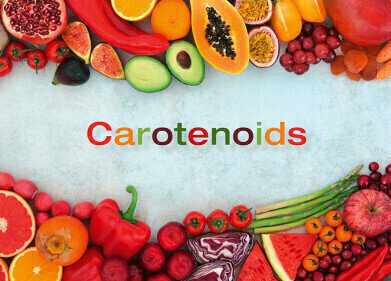HPLC, UHPLC
Normal vs Organic Apples - Chromatography Puts Them to the Test
May 14 2020
Organic food and drink sales are still increasing in the UK, for the eighth successive year. One of the latest major reports by the Soil Association into the sector suggests that sales rose by 4.5% in 2019 with total sales of £2.45 billion. We now spend almost £200 million every month on our organic apples, pears and meat. And although supermarket sales increased slightly last year, the independent high street retailers saw a healthy 6.5% increase. But the big winners were the organic food home delivery companies with an extra 11.5% of us wanting our organic food and drink delivered.
There are many different reasons why organic sales are growing, especially as fresh organic food and drink is usually sold at a premium price. Environmental reasons, animal welfare and reduced chemicals are all motives for people choosing to eat organic food. But what about nutrient value? A recent paper published in the online journal Applied Science has investigated the nutritional effects of organic farming in apples using high performance liquid chromatography. And the results suggest organic could be best.
What is organic?
The label organic on the food we eat is a tightly regulated and controlled label. In fact, if a food product is labelled as organic and it hasn’t been inspected and certified by one of the UK’s nine organic control bodies you are breaking the law. There are strict steps to obtaining organic certification that covers the production, preparation, storage, import and selling of organic food and drink.
In the UK, the UK Government states organic farming can include:
- avoiding artificial pesticides and fertilisers
- use good husbandry such as crop rotation to help maintain soil fertility
- control pests and diseases using approved materials
- use only a limited number of approved products and substances where necessary in the processing of organic food
More nutritious apples?
So, does organic farming and practices make for more nutritious fruit? A team from the Institute of Human Nutrition Sciences at the Warsaw University of Life Sciences set out to find out. The aim of their study was to assess the differences between apples grown in organic and conventional orchards in Poland. The team were interested in differences in phenolic acids, flavonols and vitamin C.
They studied three different apple cultivars over two growing seasons. The fruit was analysed using high performance liquid chromatography, a powerful analytical tool as discussed in the article, The use of Mobile Phase pH as a Method Development Tool. The team from Warsaw found that the organic apples tested in the study had significantly higher concentrations of phenolic acids and flavonols. The authors report a favorable composition of organic apples compared to conventional apples of three tested genotypes.
Organic or conventional - which do you prefer.
Digital Edition
Chromatography Today - Buyers' Guide 2022
October 2023
In This Edition Modern & Practical Applications - Accelerating ADC Development with Mass Spectrometry - Implementing High-Resolution Ion Mobility into Peptide Mapping Workflows Chromatogr...
View all digital editions
Events
ACS National Meeting - Fall 2024
Aug 18 2024 Denver, CO, USA
Sep 04 2024 Chiba, Tokyo, Japan
Sep 04 2024 University of Warwick, Coventry, UK
Sep 10 2024 Rockville, MD, USA
Plastics Recycling World Expo Europe
Sep 11 2024 Brussels, Belgium














